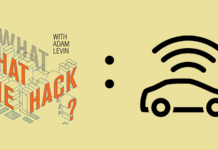

News of Tyler Clementi’s tragic suicide after the teenage Rutgers student was emotionally devastated by an online video brings to mind other cases in which webcams became spying tools, with repugnant consequences.
Perhaps the most infamous involved the Lower Merion School District in suburban Philadelphia, which gave laptops to high school students. District officials activated the laptops’ webcams 42 times, capturing images of shirtless students sleeping or walking around their bedrooms. The practice was discovered when an assistant principal accused student Blake Robbins of dealing drugs.
Actually, Robbins was just eating candy.
Robbins’ parents sued. One district worker actually had the nerve to say students had no right to expect any privacy. That argument was preposterous, like a trapped rat arguing it had every right to steal cheese. A federal judge smacked the district down, banning school employees from using the webcams without students’ consent. The district agreed in October to settle lawsuits by Robbins and another student for $610,000.
In May 2009, scientist David Gibbs was accused of planting a webcam in a nurses’ changing room in Weston-Super-Mare, United Kingdom, and downloading pornographic images onto a laptop.
Then there was Craig Matthew Feigin, a ball of slime who designed and sold software to hijack webcams to spy on women, accumulating a database of 20,000 pictures of women in various states of undress. Feigin was sentenced in April 2009 to 30 months in prison.
In all these activities – an intimate experience between two consenting adults; eating candy in the privacy of a bedroom; getting changed before work; undressing for bed – we expect to be left the hell alone. But technology is changing faster than culture. The confluence of cheap webcams, social networking websites and universal Internet connection has landed us here, in the Privacy Perfect Storm.
And in many cases, our deepest secret becomes the first and lasting thing anyone knows about us. Tyler Clementi will not be remembered as a sensitive young man or a talented violinist, which he was, but rather as the sexually questioning guy who killed himself after his private sex life became public. As Jeffrey Rosen wrote in an excellent essay in The New York Times Magazine this year, human beings evolve. We learn from our experiences, and we change.
But our online identities don’t evolve. Especially when something private or embarrassing is posted about us – photos from a drunken party, videos of us alone in our underwear. We are forever that person who did that embarrassing thing.
We can do lots of things to protect ourselves, which I’ll cover in future blog posts. But right now, the most important thing we can do is take a moment and really think about our new, terrifying age. Ask yourself these questions:
- Someday soon you may find your most intimate secret posted online for everyone to see. What do you do? How do you prevent this from turning into a tragedy like Tyler Clementi’s?
- What are you doing to protect yourself and your identity?
We are not invincible when we are online. And tragically, we are vulnerable even when we are in the changing room of a clothing store, visiting the hospital, walking around our own bedrooms – anywhere someone could potentially hide a webcam.
The future is scary. But it’s here nevertheless. It’s well past time for all of us to figure out how to protect our privacy in this brave new world, Mark Zuckerberg and Facebook notwithstanding.
Originally posted at Credit.com.









